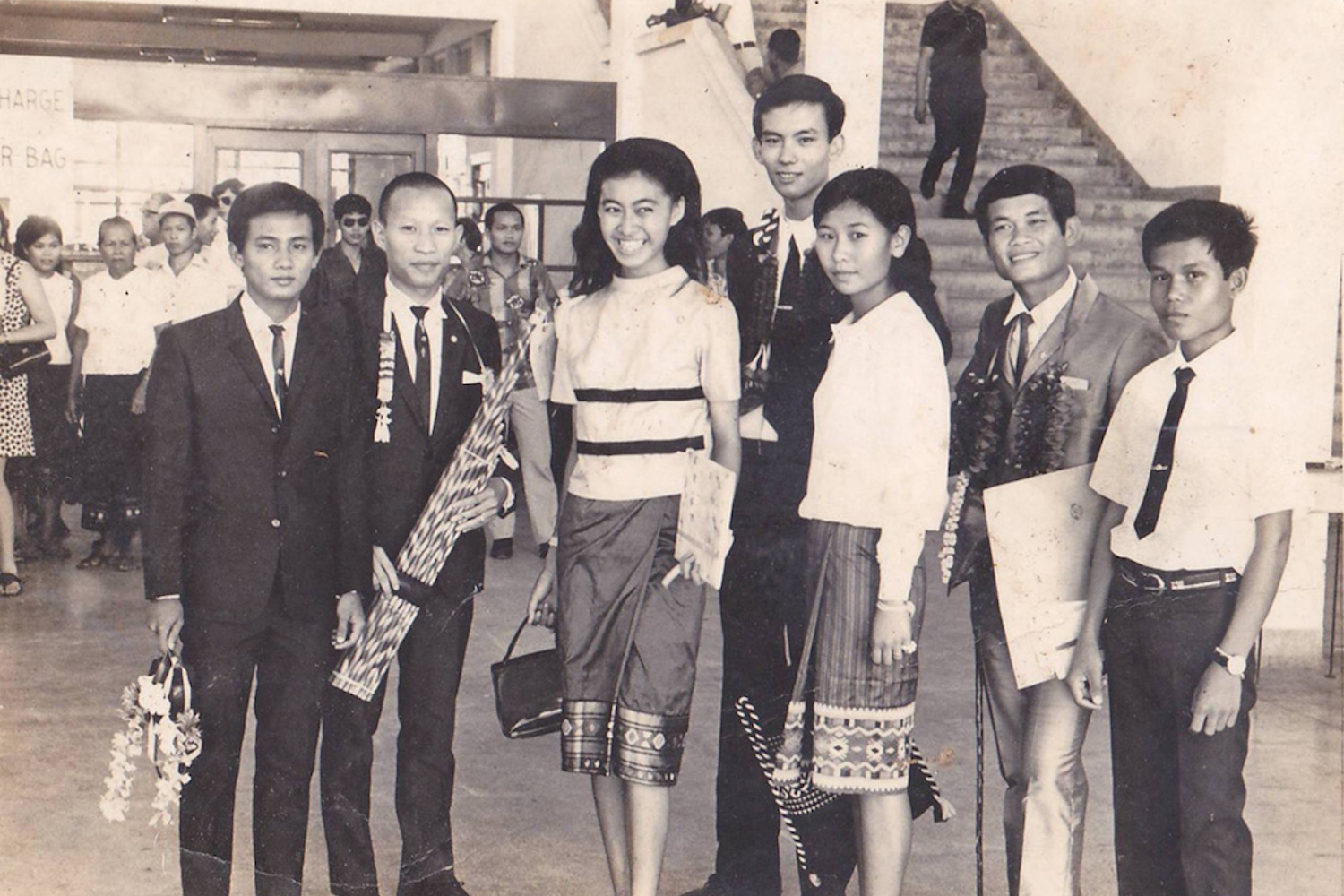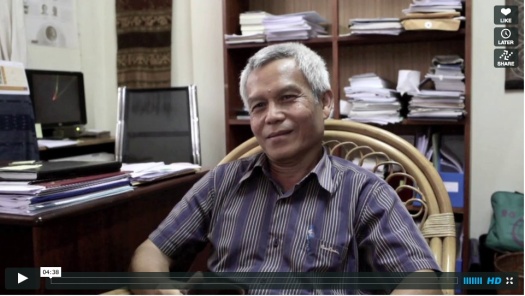7pm Wednesday Dec 11, 2013
Members Free, Non-Members: 350 Baht
Sombath Somphone, perhaps the Lao PDR’s most prominent community development activist and founder of the Participatory Development Training Center (PADETC) was last seen on the evening of Dec 15, 2013 on a road in Vientiane. According to footage from a CCTV camera, he was stopped in his own vehicle by police, left it, and minutes later got into another vehicle and was driven off into the darkness.
Since then, a veil of silence has descended on the disappearance of the man who in 2005 was awarded the Ramon Magsaysay Award for Community Leadership. The Lao government which has denied any involvement in his disappearance, has come under pressure for a credible explanation – which has not been forthcoming. 100 days after Sombath disappeared, US Secretary of State John Kerry in a statement said “Regrettably, the continuing, unexplained disappearance of Mr. Sombath, a widely respected and inspiring Lao citizen who has worked for the greater benefit of all of his countrymen, raises questions about the Lao government’s commitment to the rule of law and to engage responsibly with the world.”
To mark one year since he disappeared and to ensure that the incident is not forgotten, the FCCT is pleased to host Sombath’s wife Ng Shui Meng who will speak about her husband’s life and work.
And to join Ng Shui Meng to speak about human security, transparency, accountability and state power, the FCCT is pleased to host:
Pablo Solón, Executive Director of Focus on the Global South. Mr Solon was the Plurinational State of Bolivia’s Ambassador to the UN and chief negotiator for climate change from 2009 to 2011. His brother (Jose Carlos Trujillo Oroza) was one of the forced disappeared in Bolivia in 1972 during the dictatorship of Banzer. His mother (Gladys Oroza de Solon) was co-founder of the Bolivian Association and Latin American Federation of the forced disappeared.
Evelyn Balais-Serrano, Executive Director of the Asian Forum for Human Rights and Development (FORUM-ASIA). Ms. Balais-Serrano has over 40 years of experience in development, human rights and international justice work. Among other initiatives, she helped set up through the Task Force Detainees- Philippines (TFDP), a rehabilitation center for released political prisoners and torture victims and the filing of a class suit in Hawaii against President Marcos after 14 years of martial rule. She also helped establish the Human Rights Commission of the International Federation of Social Workers, where she served as Commissioner for Asia-Pacific for many years. Before returning to FORUM-ASIA in 2013, she spent 10 years as Coordinator for Asia-Pacific with the Coalition for the International Criminal Court (CICC), a global network of civil society organizations advocating for a fair, independent and effective ICC.
Foreign Correspondents’ Club of Thailand
Penthouse, Maneeya Center Building
518/5 Ploenchit Road (connected to the BTS Skytrain Chitlom station)
Patumwan, Bangkok 10330
Tel.: 02-652-0580
E-mail: [email protected]
Web Site: http://www.fccthai.com


